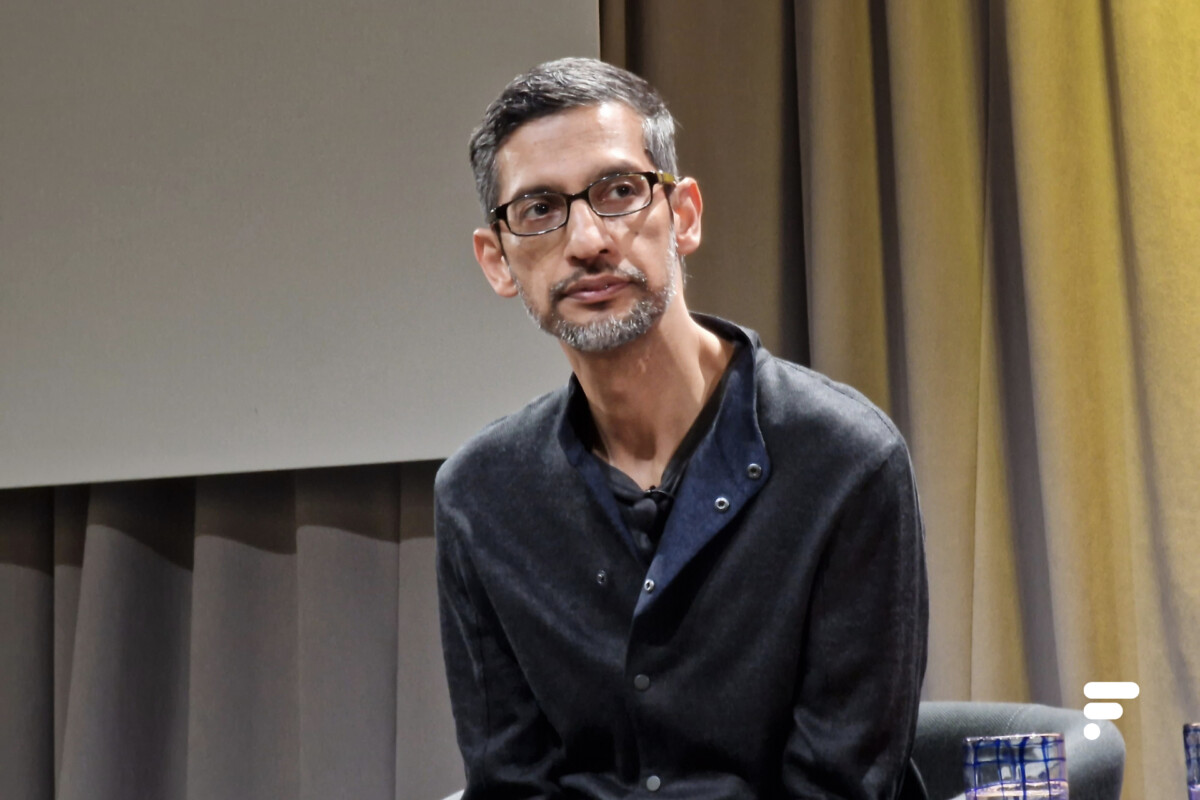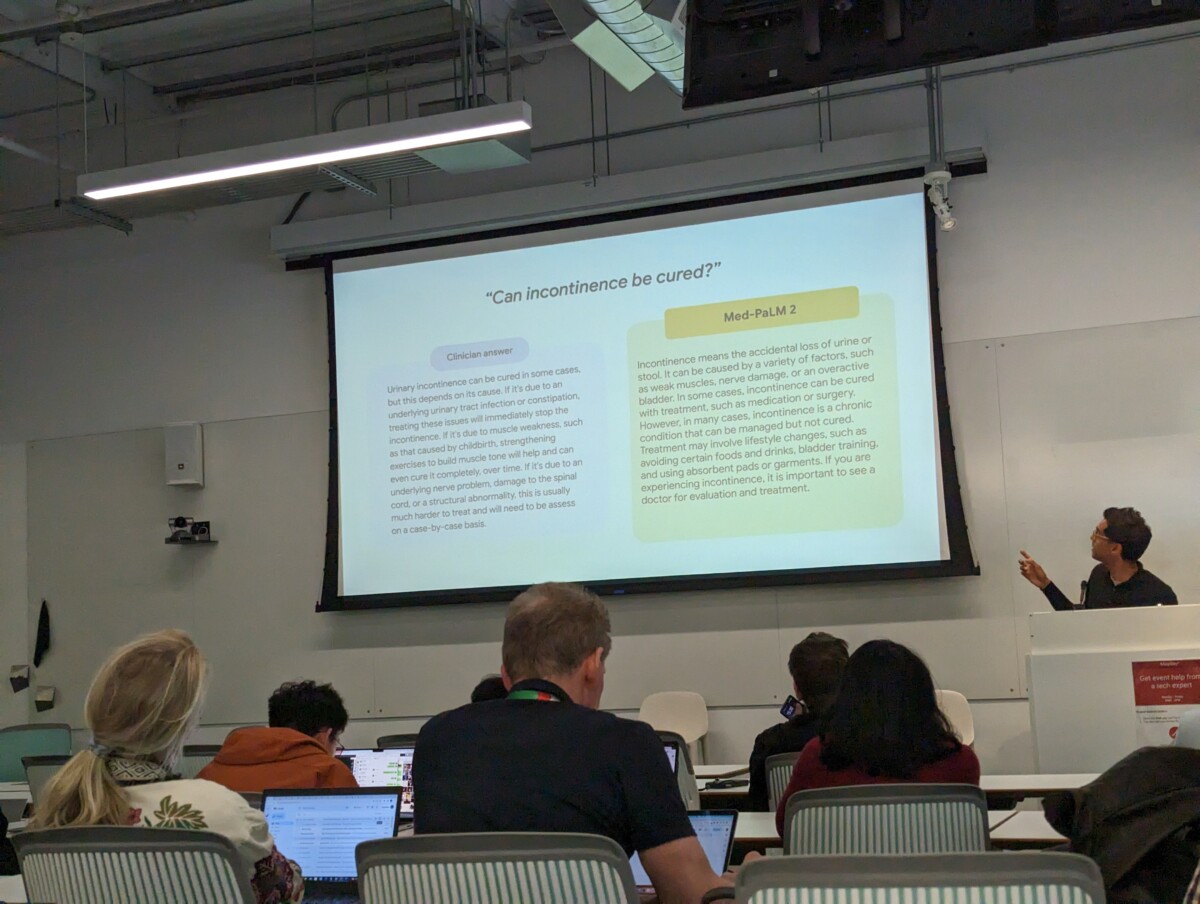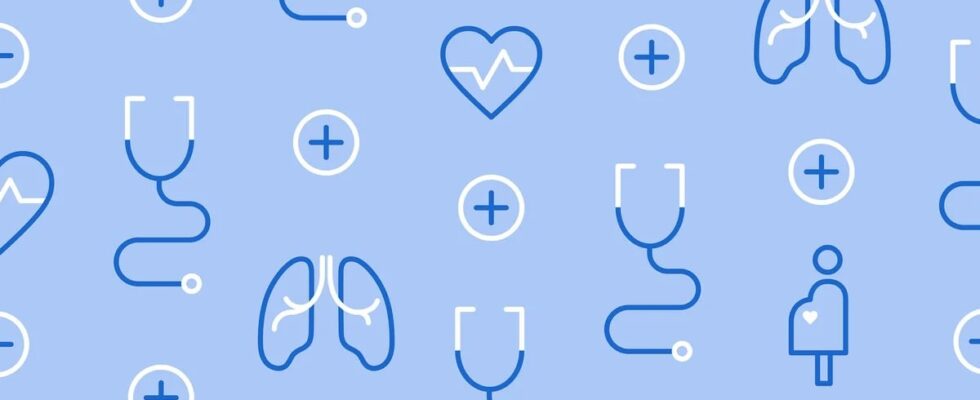Google’s Med-Palm 2 model allows great advances for artificial intelligence dedicated to medicine. Here is a glimpse of its potential.
A runny nose for days? A persistent headache? An itchy ear? We have all already wanted to find out on the web to find out if we did not present a symptom of a potentially serious illness. This is often a bad idea since some sites tend to be alarmist and worry us unnecessarily.
Can artificial intelligence address this problem? Google would answer yes. AI was ubiquitous during Google I/O 2023, both during the keynote and during the press roundtables that took place afterwards.

During one of them, the boss of Google, Sundar Pichai indicated that “artificial intelligence will allow technological breakthroughs in the next ten years in different fields“. He cites two in particular: the environment and medical care.
The achievements of Med-PaLM 2
So let’s dwell on medical care and more specifically on the Med-PaLM 2 initiative. As its name suggests, it is a version dedicated to the medical world of PaLM 2, the latest language model ( LLM) unveiled by Google.
As a reminder, PaLM 2 is the model that will now power many Google AI tools, including Bard for example. This LLM takes advantage of numerous architecture optimizations to be faster, lighter and more efficient.
As you will have understood, the tools resulting from Med-PaLM promise to improve many things in medicine, particularly in terms of research. The blog post mentions advances in the detection of breast cancer or tuberculosis, for example.
Med-PaLM and your health questions
However, the teams working on Med-PaLM 2 are also thinking about tools that can answer certain questions from users on a daily basis. Doctor Alan Karthikesalingam, Research Lead at Google, provided some interesting explanations on this subject.
It should therefore be noted that Med-PaLM 2 achieves an 85% success rate on medical knowledge tests, i.e. 18% more than the first Med-PaLM of the name. To give a concrete idea of the improvements this can bring, Alan Karthikesalingam explains that a batch of 3000 medical questions among the most requested on Google were collected to train Med-PaLM 2 and compare the results to Med-PalM.

He dwells on one of the questions:can incontinence be cured?Med-PaLM offered a well-formulated response, containing no inappropriate or false recommendations. Alas, the first version of Med-PaLM proposed an answer containing two biases:
- the model focused only on urinary incontinence;
- he directed his response especially towards women who had recently given birth to a child.
On the other hand, the answer of Med-PaLM 2 is much more complete. The new LLM goes beyond just one type of incontinence, better details potential causes and provides more tips for dealing with them.
This is just one example of many improvements unlocked by Med-PaLM 2 over its predecessor, but it gives a good idea of the issues that teams dealing with such a type of language model can face.
An AI that replaces doctors? Not far from here
As technology improves, should we expect artificial intelligence to replace doctors? Alan Karthikesalingam responds in the negative. He says many of his fellow doctors are quite enthusiastic about freeing up time for other tasks where the human cannot be replaced.
In answering another question, he also specifies that for ethical and security reasons, an artificial intelligence of this type can only afford to answer fairly general questions about medicine.
On the other hand, for obvious ethical and legal reasons, an AI cannot substitute for the doctor to prescribe a specific treatment for a patient. Each situation being different, the slightest error could have serious consequences.
Moreover, he emphasizes that research in this area was still very far from complete to consider such practices. In other words, AI therefore promises to complement a medical consultation, but is not intended to replace medicine. Not immediately.
NB. Our journalist Omar participates in the Google I/O in Mountain View as part of a press trip organized by Google.
Want to join a community of enthusiasts? Our Discord welcomes you, it’s a place of mutual aid and passion around tech.
